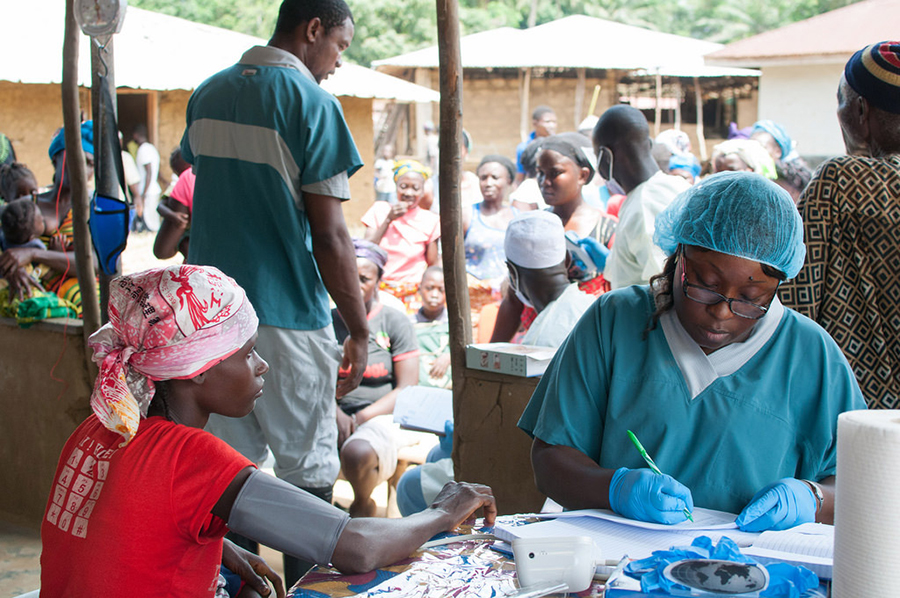DAI Global Health Presents at Pandemic Policy Summit
October 18, 2018
Two DAI Global Health experts presented this week at the 4th Annual Pandemic Policy Summit, at the Annenberg Presidential Conference Center at Texas A&M University. The summit focused on the importance of One Health—the nexus of human, animal, and environmental sciences—100 years on from the 1918 influenza outbreak that swept the globe, with the theme, “Looking back to look forward: Are we prepared for the next pandemic?”
Organized by the Scowcroft Institute of International Affairs, the summit attracted the participation of a range of actors from government officials and donors, to the private, academic and civil society sectors in simulation and discussion around innovative approaches to global health security, preparedness and response to emerging pandemic diseases.

In Liberia, a health care worker screens patients at a clinic. In West Africa, the devastating 2014 Ebola Virus Disease outbreak highlighted the urgent need for many countries to strengthen prevention, detection, and response to pandemic threats. P&R works with 15 countries to update the systems, policies, and practices—including the preparedness and response plans that can outline better screening procedures—that contribute to improved global health security.
DAI’s Susan Scribner, Director of the U.S. Agency for International Development’s global Preparedness & Response (P&R) project, presented a keynote speech titled, “Building more effective mechanisms for multisector collaboration/coordination,” and was also a One Health panelist with Jay Maddock, Dean of Public Health at Texas A&M University; Christine Kreuder Johnson of the University of California at Davis; Kristian G. Andersen of the Scripps Research Institute; and Dr. Lei Zhou from the Chinese Center For Disease Control And Prevention.
Robert Salerno, DAI Global Health’s Technical Integration Manager for P&R, presented a Sponsor Innovation segment during the public stage of the conference, the Pandemic Response Innovation Forum. He discussed the One Health Assessment for Planning and Performance (OH-APP), a monitoring framework for multisectoral coordination mechanisms to annually self-assess their organizational capacity and performance. The OH-APP complements the WHO Joint External Evaluation, providing more specific indicators to measure the maturity of a multisectoral coordination mechanism and to benchmark its progress towards becoming a sustainable mechanism for preparedness and response to public health threats.
RELATED CONTENT:
DAI Tapped to Present Approaches to Capacity Building at USAID’s LCD Summit
Two DAI projects will be highlighted at the U.S. Agency for International Develoment (USAID)’s Local Capacity Development Summit, June 18-19.
Read More